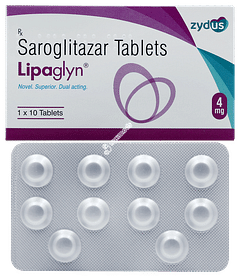Vertin Tablet side effects include the following:
Headache: The most common side effect of Vertin is a headache. Headache can be experienced anywhere from a few minutes after taking the tablet to several hours later.
Indigestion: Vertin can also cause indigestion in some people. This is usually felt as a burning sensation in the chest or abdomen and may be accompanied by nausea, bloating, and a feeling of fullness.
Nausea: Nausea is one of the most commonly reported side effects of Vertin. This side effect can range from mild to severe and may accompany other symptoms such as vomiting and stomach pain.
Stomach Pain: One of the most commonly reported side effects of Vertin is stomach pain. While it may be mild for some people, others may experience more severe symptoms such as bloating, cramping, and nausea.
Bloating: Bloating is caused by excess air in the stomach, either due to swallowing too much air or gas accumulation due to the drug’s effects on the digestive system.
Managing the Side Effects
- Headache: It is recommended to take pain medications such as Vertin for mild headaches should go away on their own and do not require treatment.
- Indigestion: Try avoiding food that may trigger indigestion, including fried, spicy, processed foods and beverages such as alcohol. Eating smaller meals more frequently can also help reduce symptoms of indigestion.
- Nausea: Eating small amounts of food such as toast or crackers when feeling nauseous can help settle your stomach and reduce nausea. Avoiding large meals or sudden movements can also help reduce nausea associated with Vertin Tablet use.
- Stomach Pain: Drinking plenty of fluids and avoiding foods that may irritate your stomach can help reduce symptoms of stomach pain.
Precautions
Vertin Tablet is a medication used to treat vertigo and other related conditions. Here are some precautions that should be taken while using Vertin Tablet:
Pregnancy
Vertin Tablet should be used cautiously during pregnancy, particularly during the first trimester, when there is an increased risk of harm to the fetus. It is advisable to consult/see a doctor before using Vertin Tablet during pregnancy.
Breastfeeding
It is not known whether Vertin Tablet passes into breast milk or not. Therefore, it is advisable to consult a doctor before using a Vertin Tablet while breastfeeding.
Alcohol
Drinking alcohol while taking Vertin Tablet may cause drowsiness or dizziness, so it is advisable to avoid alcohol while taking this medication.
Liver
Vertin is known to cause liver damage in some patients. Those with a pre-existing condition of the liver should consult their doctor before taking this medication.
Kidney
Vertin Tablet should be used cautiously in patients with kidney problems, as these organs may metabolise the medication. The dosage may need to be adjusted accordingly.
Using Machines and Driving
Vertin Tablet may cause drowsiness or dizziness, affecting a patient's ability to operate machinery or drive. Therefore,avoidingd such activities while taking a Vertin Tablet is advisable.
Allergy
Vertin can cause a severe allergic reaction. If you have had an allergy to betahistine or any of its ingredients, do not take it.
Use in Children
The safety and effectiveness of Vertin Tablet in children have not been established. Therefore, it is advisable to consult a doctor before using Vertin Tablet in children.
Use in Older Patients
Older patients may be more susceptible to the side effects of Vertin Tablet, such as drowsiness and dizziness. Therefore, the dosage may need to be adjusted accordingly.
Interaction
Drug-Drug Interaction
The Vertin Tablet can interact with medications, including Isocarboxazid, Cetirizine, Chlorpheniramine, Salmeterol, and Formoterol.
Drug-Food Interaction
There are no known interactions between Vertin and food. However, it is advisable to avoid alcohol while taking Vertin, as it may increase the risk of side effects.
Drug-Disease Interaction
The Vertin Tablet can interact with diseases, including Peptic Ulcers, Adrenal Tumors, and Asthma.

























